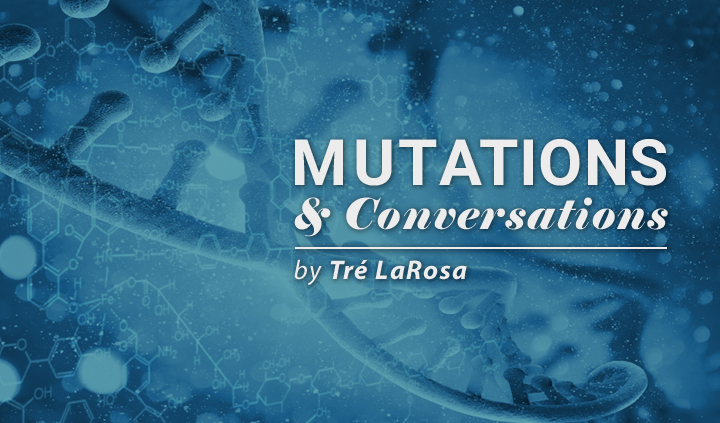What We Should Expect from the CF Foundation’s ‘Path to a Cure’
Written by |

Last week, the Cystic Fibrosis Foundation launched a new initiative called “Path to a Cure.” A press release called it “an ambitious research agenda to deliver treatments for the underlying cause of the disease and a cure for every person with cystic fibrosis (CF).”
It added: “The Foundation is challenging potential collaborators to submit proposals that will accelerate the pace of progress in CF drug discovery and development and intends to allocate half a billion dollars to the effort through 2025.”
News of the initiative comes nine days after an announcement by the U.S. Food and Drug Administration that it has approved the highly anticipated treatment Trikafta, a triple combination therapy of ivacaftor, tezacaftor, and the new elexacaftor (VX-445). Trikafta’s clinical trial outcomes were remarkable and on par with the early clinical results from the highly effective Kalydeco several years ago, especially when compared with the outcomes of the not very robust but efficacious Orkambi and Symdeko.
The foundation’s strategic plan for the next five years is audacious, but I think it’s an honest pursuit. A year ago, I wrote about what a cure for CF might look like, and I discussed how the progressive and chronic nature of CF makes “curing” it a sort of nebulous concept.
In CF, the broken protein that is the underlying cause of the disease isn’t the killer. The killers are the recurring infections, the inflammation, and the downstream effects of the broken cystic fibrosis transmembrane conductance regulator (CFTR) protein. Due to recurring infections, the lungs become damaged, and endemic bacteria become more resistant to traditional antibiotics.
For someone with moderate lung disease, fixing the underlying issue won’t heal the scar tissue or reconstruct damaged airways. Most people with CF are pancreatic insufficient. Theoretically, an embryonic cure would prevent sustained damage to any part of the body. Once birth occurs, however, a cure would be too late to prevent even the slightest damage.
In the column from last year, I also wrote: “I’m not saying a cure is impossible or undesirable. Rather, there are multiple pillars to ultimately curing all the ills that deeply affect our lives. I think looking at a cure in this way is a reason to be hopeful.” I added that I didn’t believe this change of perspective about what a cure looks like should be a reason for discouragement.
What I like about the CF Foundation’s “Path to a Cure” is how they’re discussing what the different paths look like. Current therapies are modulators. At best, they repair CFTR protein, which is different than fixing or replacing it. This initiative also emphasizes the most important tenet of all CF therapies: It is intended to help everyone with CF. Complicated mutations will require different strategies.
A cure for cystic fibrosis is a complicated endeavor. CF is a particularly interesting genetic disease for many reasons, not least of which is that the pathway to curing it could be extrapolated to other diseases with genetic causes or predispositions. I do believe a cure is possible, though I’m usually cautious to offer my commentary on the word “cure.”
Many subpopulations exist in the CF community. Thousands of people in the world have CF. A percentage of that population doesn’t have access to the most basic CF treatments. Many people in the United States don’t even have good access or care. Modulators aren’t approved for transplant patients.
It’s not for nothing that the CF Foundation — and the community itself — must ask one important question: What does life look like for someone with feeble lung function that is “cured” of CF? If other treatment plans aren’t in place — such as better transplant strategies utilizing stem cells, or using stem cells for lung regeneration — a cure may not prolong life, but rather prolong the misery of end-stage disease.
Part of planning for the future is predicting the effects of that plan. But we must ask: How are we giving everyone with CF the chance to live well into their 70s and 80s? I think the important discoveries made along the way will be instrumental in learning if it’s possible to repair diseased lungs through regenerative medicine.
“Path to a Cure” is one of the most exciting research agendas we’ve seen. I’m looking forward to the day when the CF Foundation announces that a cure has been found.
Follow along with my other writings on my humbly named site, www.trelarosa.com.
***
Note: Cystic Fibrosis News Today is strictly a news and information website about the disease. It does not provide medical advice, diagnosis, or treatment. This content is not intended to be a substitute for professional medical advice, diagnosis, or treatment. Always seek the advice of your physician or other qualified health provider with any questions you may have regarding a medical condition. Never disregard professional medical advice or delay in seeking it because of something you have read on this website. The opinions expressed in this column are not those of Cystic Fibrosis News Today, or its parent company, Bionews Services, and are intended to spark discussion about issues pertaining to cystic fibrosis.







Leave a comment
Fill in the required fields to post. Your email address will not be published.